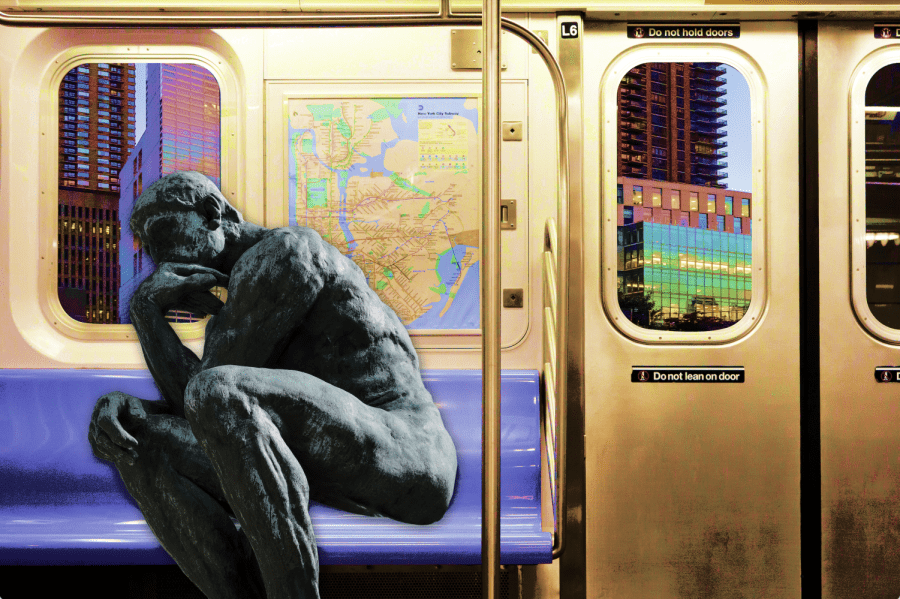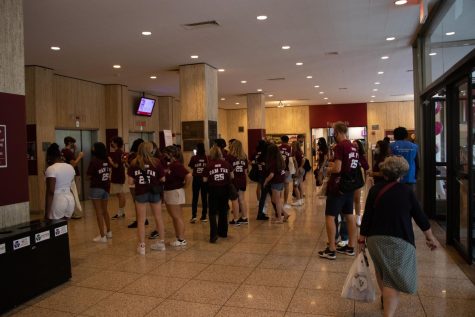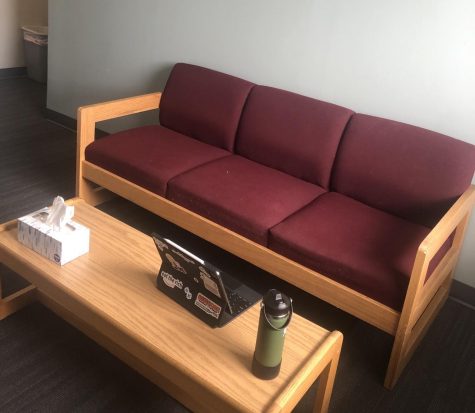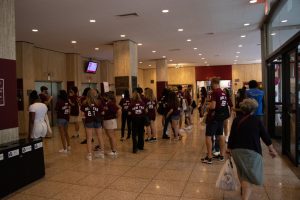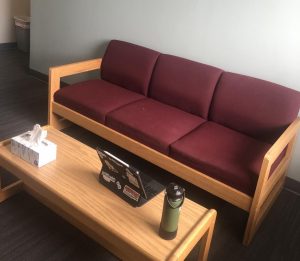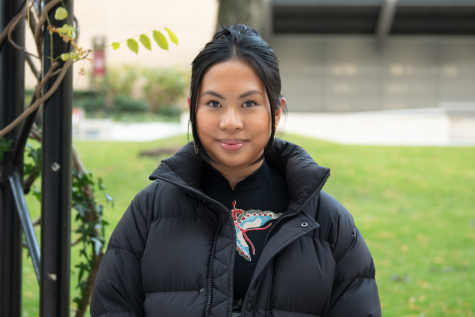Commuters Deserve More at Fordham
Just because your school is located in the city doesn’t make it accessible for commuters
Though Fordham’s commuters have access to on campus services, many feel isolated from the community and are unable to go to social events.
October 12, 2021
At the beginning of August, all of my best friends left our hometown. They said goodbye to our favorite cafes, brunch spots and high school, but the only thing I said goodbye to was them.
They gave me huge hugs as they packed their bags and headed off for the rest of their lives — or until November. They shed a few tears as they left their families, but they were excited to start their “new” lives.
What did I do? I sat in my room, which has been decorated the same since the beginning of high school, and ordered my textbooks.
The days are the same and everything is a continuous cycle.
My friends FaceTimed me as they unpacked their belongings and met their roommates. We talked about all the new experiences we would endure and the people we would meet. Finally, on Aug. 29, I got my new beginning: my first day of college at Fordham Lincoln Center. I instantly made friends and found my way around the school, but something was still missing.
Almost every morning, I wake up at 6 a.m. for my 8:30 a.m. class and get ready for the long day. I swipe my yellow MetroCard at the turnstile and walk up the never-ending stairs that lead to the N train. By the time I finish the 12-minute walk from 57th Street and 7th Avenue, I only have 10 minutes to myself. Exhausted as I wait for the crowded elevator, I think, “I did this to myself.” The days are the same and everything is a continuous cycle.
Moving away from your family and what you’ve always known seems hard, but we all have to do it one day; college residents just chose to do it sooner rather than later. I watch the residents head to their dorms during their two-hour break while I try to get my work done at the library. They are meeting people who they will possibly be with for the rest of their lives. They have events that bring them together every night. Residents have a place of comfort here at college. Commuters do not.
The majority of us are commuting alone, so we feel unsafe traveling back that late at night.
Since my commute is the longest out of everyone I know, I realized I could be biased. To get a broader perspective, I asked my friends at Fordham — all of whom are commuters — how they felt about commuting.
Francesca Alaimo, Fordham College at Lincoln Center (FCLC) ’25 and a commuter from Astoria, Queens, leaves her house an hour and a half early to account for train delays and elevator traffic. “I like having the comfort of my home,” Alaimo said. The only issue she faces is the lack of time she has for herself and her studies while commuting.
Not everyone felt this way. “Commuting wasn’t a choice; I hate having to wake up early just for the possibility that I will be late to class,” Amira Motair, FCLC ’25, said. Motair commutes from East Elmhurst, and she has to take a bus and two trains to make it to Fordham.
Even though my commuter friends and I have commuted all of our lives, this time the commute is much longer. Most of us are traveling from outside of Manhattan and face delays.
“The commute to my high school was a five-minute walk, now it’s a 40-minute subway ride,” said Youssef Agour, Gabelli School of Business at Lincoln Center ’25, who is commuting from Briarwood, Queens.
Commuter students also complained that events are often hosted at times inaccessible to them. “I can’t always go to an 8 o’clock event and get home around 11,” Ilayda Vural, FCLC ’25, said. “One of the clubs I was going to join had meetings from 7:00 pm to 10:00 pm,” Motair added.
Regardless of the cost of transportation or the times of social events, we chose to go to Fordham.
The majority of us are commuting alone, so we feel unsafe traveling back that late at night. Therefore, we miss out on social gatherings that could possibly make us feel more included in our school community.
However, there is a simple solution to this: make the events earlier. If the events started at 5 or even 6 p.m., many commuters would be able to come. This makes a more inclusive community for Fordham itself and helps connect the commuters and residents.
As for commuters who use the MTA, we are spending nearly $35 per week just getting to school. We remember receiving our acceptance to Fordham and feeling ecstatic about the Metro Grant, a $10,000 award from Fordham for eligible commuter students to put toward travel fare. But the Metro Grant is inherently a $10,000 scholarship that is applied to our tuition — a MetroCard with $10,000 is not handed to us, leaving us to have to spend our own money on transportation. Many students, including me, cannot afford our tuition without the Metro Grant being applied. However, in order to accommodate all students, there should be funds directly allocated to paying for MTA fares.
Regardless of the cost of transportation or the times of social events, we chose to go to Fordham. Exploring the city and its endless possibilities with our peers is what drew us here in the first place.
We are all grateful for Quinn Library and the haven it has provided us; we will never stop getting Argo Tea before every study session; and I love the fact I still get to go home to my family every night. But commuters feel as if we are not one with the rest of the students. At the end of the day, New York is our campus. But, we want to feel as if Fordham is our school.

